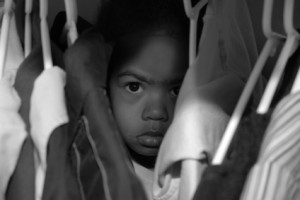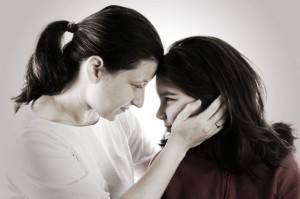
From the Mouths of Babes: Speaking With Your Child About Cancer
Explaining a serious illness like cancer to a child is daunting for any parent. How, when, and how much do I tell my child? Parents may think it best to shield the child from the realities of the illness by not informing them about what is to come.
Alketa Kumbaro, an early childhood educator from the Magic Castle childcare service at Princess Margaret Cancer Centre in Toronto, works with the children of parents who are being treated for cancer at the hospital.
“The Magic Castle is a rich environment where children can explore and have fun,” says Kumbaro. “Our program provides a variety of resources for both parents and children. We have books designed specifically for children to help them better understand what cancer is, and books for parents to assist them in talking to their kids about it.”
Kumbaro agrees with experts in the field, that parents should talk to their children about cancer. The sooner they do, the better.
Tell children as soon as you know
Experts emphasize that parents should tell their children about their illness as soon as possible. Since children are able to sense very small changes in the dynamics of the family, neglecting to tell them about the illness will only make it harder.
Kumbaro explains, “children will notice that things are different even if you do not tell them. They may say ‘mommy you don’t look like yourself’ or ‘mommy you’re hugging me too much/not enough.’ They might also start hearing things from friends or family members, so it is best to tell them yourself.”
Joan Hamilton, a clinical nurse specialist explains that you do not have to tell them everything at once. She recommends in her book, When a Parent is Sick, that when talking to children about cancer, parents should “get a reading” from the child on how much to tell at a time. Children are usually only able to listen to so much before feeling the need to move on to something else that is familiar and comfortable.
Use the word cancer and explain it in words they can understand
Do not shy away from using the word cancer. Giving it metaphorical names will only make it confusing for the child. Hamilton suggests that if they are older than five, try explaining it in simple terms to help them understand and identify the type of cancer the parent has.
Explain the treatments planned for the near future
Explain as much as you know about what the next few months are going to look like. Will the parent be home or at the hospital? What kind of treatment is the parent going to go through? Will the treatment make the parent look any different?
Explain how things will change for the child
One of the things children are most worried about is who will take care of them and how much of their normal routine is going to change. Address these issues to alleviate some of the stress that may be associated with the parent’s illness.
Explain how much (if at all) their lives are going to be impacted. For example, will the family have to move to get closer to the hospital? Will they still be able to go to the same school? Will their grandparents become more involved?
Address “mixed-up” information
Children are bound to hear things from their friends or overhear family members talking about you or about cancer. Hamilton suggests that if children hear anything that conflicts with what you had told them, they should come to talk to you about it. Encourage them to ask as many questions as they would like. It is better that they ask you than imagine the worst based on things they hear from others.
Tell children you will keep them up to date with information
Explain to your children that although you do not know all that is going to happen, you will keep them up to date with new developments. Reassure them that as important members of the family, you want them to know everything that happens and that as soon as you know anything new, they will too.
Address the issue of death
Depending on their age, children may associate cancer with death. Although this is the most difficult subject of all to discuss, it is also the one that tends to bother children the most.
Hamilton explains that avoiding the subject of death might cause the child to think that the subject is off-limits, and this can hurt the open communication that is the key in talking about cancer. Due to their vivid imaginations, children can develop an unhealthy preoccupation with the worst case scenarios they create in their minds.
Be honest with your child. Explain to them that sometimes people die from cancer but that the medical staff is doing everything they can to make the parent better.
Talking to your child about cancer is not easy, but is important. Open communication is a big part of the acceptance and understanding of the illness.
-Noam Bin Noon, Contributing Writer





